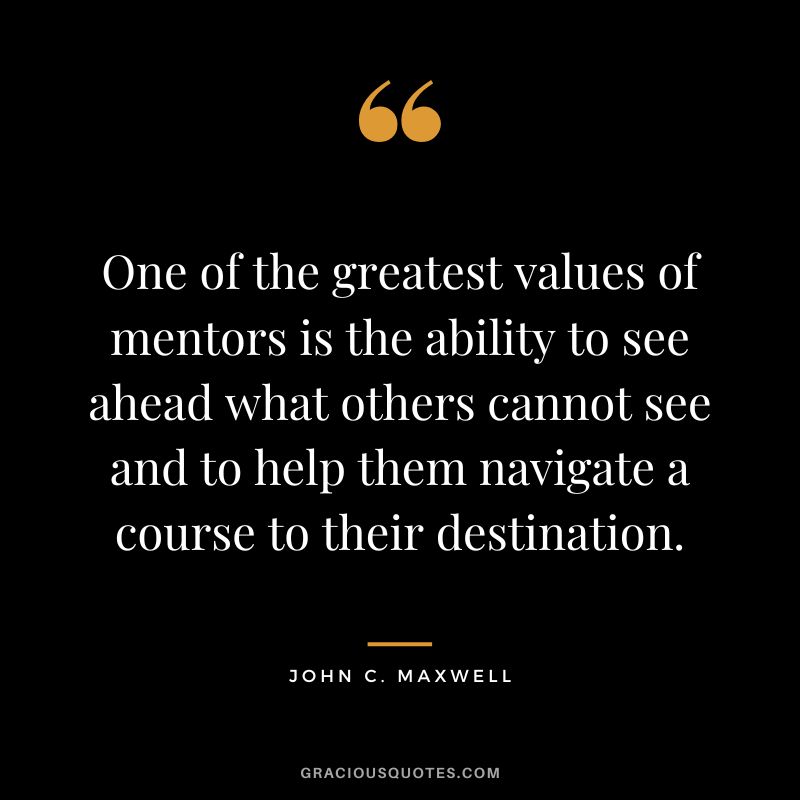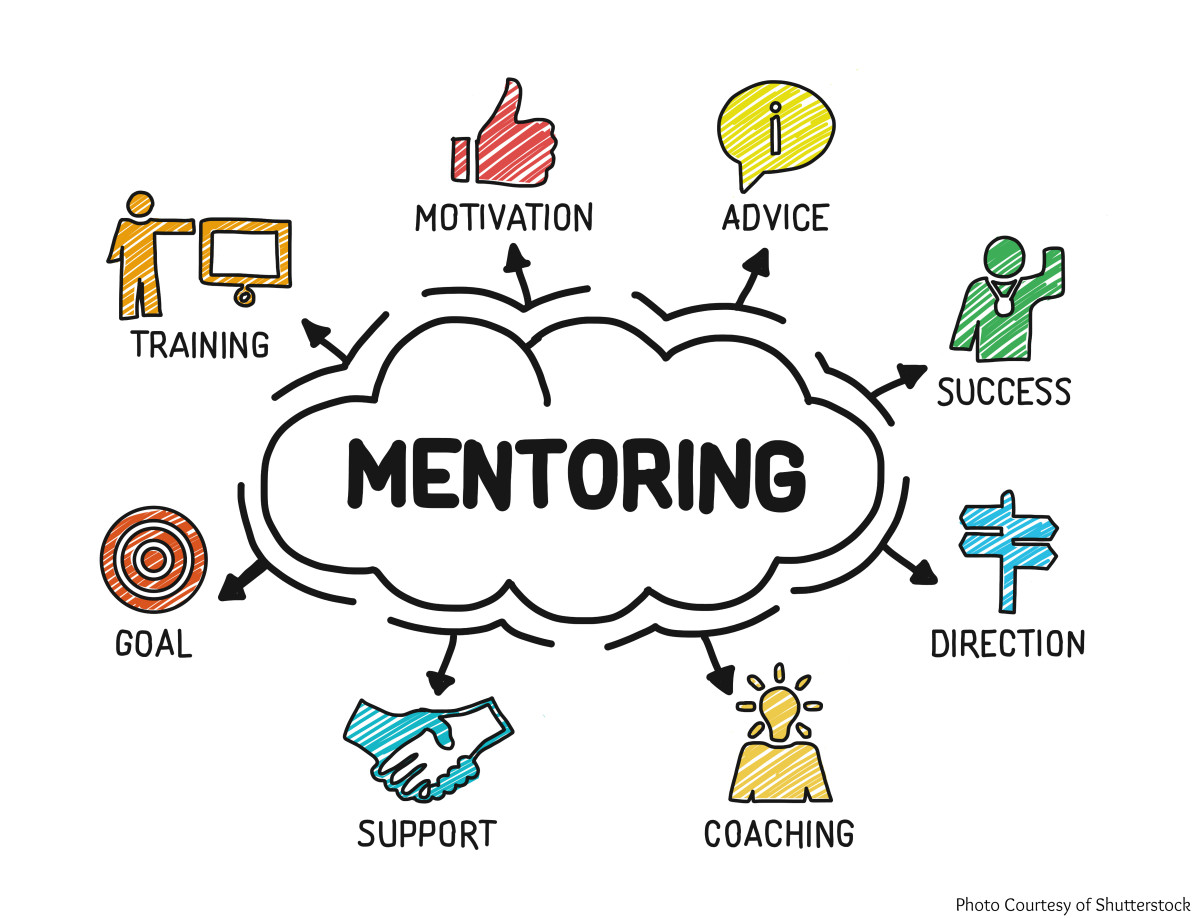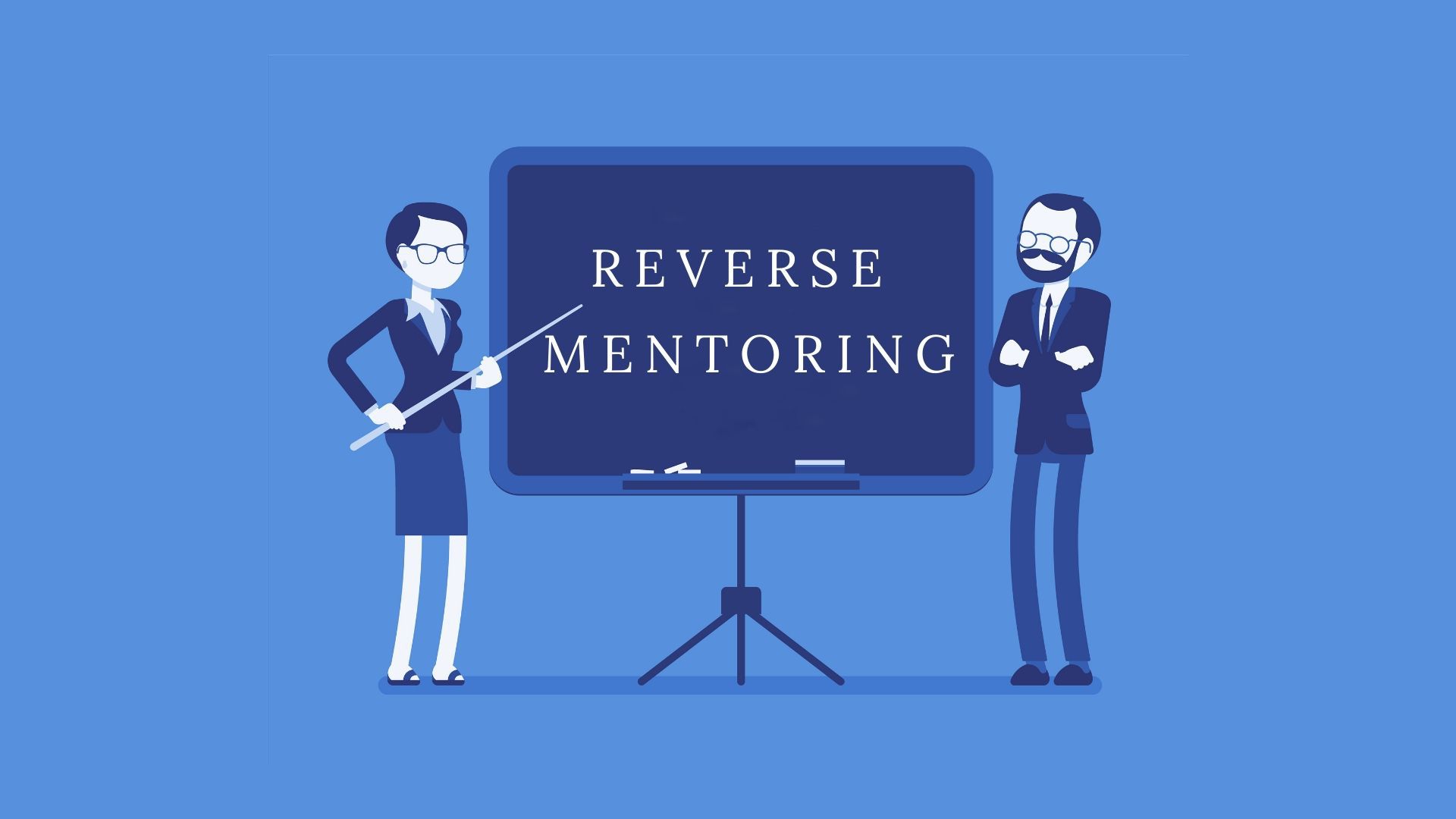Identifying the Ideal Mentor: Key Qualities to Consider
Finding the right mentor is a crucial step towards personal and professional growth. A suitable mentor can provide guidance, support, and valuable industry insights that can help you navigate your career more effectively. When searching for a mentor, consider essential qualities such as experience, communication skills, and a genuine interest in your development.
An experienced mentor can offer wisdom and insights gained from years of practice in your field. They can share their successes and failures, helping you avoid common pitfalls and make informed decisions. Moreover, a mentor with strong communication skills can articulate their thoughts clearly and effectively, ensuring that you understand their advice and can apply it to your own situation.
A mentor who demonstrates a genuine interest in your growth is more likely to invest time and effort in your development. They will be committed to helping you achieve your goals and will provide constructive feedback to help you improve. Additionally, a mentor who is passionate about your field can inspire and motivate you to reach your full potential.
To find good mentors, consider your existing network of colleagues, supervisors, and industry professionals. Attend industry events, join professional organizations, and utilize social media platforms to connect with potential mentors. Building relationships with professionals in your field can increase your chances of finding a suitable mentor who can help you achieve your goals.

Networking: Building Relationships for Long-Term Mentorship
Networking is a vital strategy in finding potential mentors and building long-term mentorship relationships. By expanding your professional network, you increase your chances of connecting with experienced professionals who can provide guidance, support, and industry insights. Here are some tips on how to network effectively and find good mentors.
Attend industry events, such as conferences, seminars, and workshops, to meet professionals in your field. These events provide excellent opportunities to learn about the latest trends and developments, as well as to connect with potential mentors. When attending events, be prepared to introduce yourself, share your goals and aspirations, and ask thoughtful questions. Remember to bring business cards and follow up with your new contacts after the event.
Joining professional organizations is another way to network and find potential mentors. These organizations often provide access to exclusive events, training programs, and online communities where you can connect with like-minded professionals. By participating in these activities, you can demonstrate your commitment to your field and build relationships with potential mentors.
Utilizing social media platforms is also an effective way to network and find good mentors. LinkedIn, Twitter, and other social media sites provide access to a vast network of professionals who share your interests and goals. By engaging with these professionals online, you can build relationships, ask questions, and demonstrate your expertise. When using social media, be sure to personalize your messages, showcase your enthusiasm, and provide value to your new contacts.
In summary, networking is a crucial strategy in finding potential mentors and building long-term mentorship relationships. By attending industry events, joining professional organizations, and utilizing social media platforms, you can expand your professional network and connect with experienced professionals who can provide guidance, support, and industry insights. Remember to be prepared, engage with your new contacts, and provide value to build meaningful relationships.

Cold Outreach: Approaching Potential Mentors with Confidence
Finding good mentors can be challenging, especially if you don’t have access to a formal mentorship program or a robust professional network. In such cases, cold emailing potential mentors can be an effective strategy. Here’s a step-by-step approach to cold emailing potential mentors with confidence.
First, craft a compelling subject line that captures the recipient’s attention. Avoid generic subject lines like “Request for Mentorship” and instead, opt for something more personalized and specific, such as “Aspiring [Your Field] Professional Seeking Insights and Guidance.”
Next, introduce yourself in the opening paragraph. Provide a brief overview of your background, your current role, and your career aspirations. Be sure to highlight any relevant experience, skills, or accomplishments that demonstrate your commitment and potential in your field.
In the following paragraph, express your interest in learning from the potential mentor. Be specific about what you hope to gain from the mentorship, such as industry insights, career advice,

Mentorship Programs: Formal Opportunities for Growth
When searching for good mentors, don’t overlook the potential of formal mentorship programs. These initiatives, often offered through workplaces or professional organizations, provide structure, support, and a clear pathway for growth. Here are some advantages of participating in formal mentorship programs and how to make the most of these opportunities.
First, formal mentorship programs offer a well-defined and organized approach to mentoring. They typically include guidelines, resources, and a clear framework to help both mentors and mentees navigate the relationship. This structure can be particularly beneficial for those who are new to mentoring or seeking a more formal learning experience.
Additionally, formal mentorship programs often provide access to experienced professionals who have been vetted and trained to serve as mentors. These individuals are committed to sharing their knowledge, skills, and expertise with mentees, ensuring a valuable and rewarding experience for both parties.
To make the most of formal mentorship programs, start by researching available options in your field or industry. Look for programs that align with your career goals and interests, and consider factors such as time commitment, program duration, and mentor availability. Once you’ve identified a suitable program, apply promptly and follow the application instructions carefully.
Once accepted into a formal mentorship program, be proactive in setting goals and establishing a productive relationship with your mentor. Regular communication, openness to feedback, and a willingness to put in the effort are essential for a successful mentorship experience. Don’t be afraid to ask questions, seek advice, and request specific guidance or support from your mentor. By actively engaging in the mentorship process, you’ll maximize your potential for growth and development.

Maintaining a Successful Mentor-Mentee Relationship
A productive mentor-mentee relationship can significantly contribute to your professional growth and development. To ensure a successful partnership, it’s essential to establish clear goals, maintain open communication, and demonstrate gratitude and respect. Here are some tips on nurturing a strong mentor-mentee relationship and maximizing the benefits of mentorship.
First, set clear goals with your mentor to ensure you’re both aligned on expectations and desired outcomes. These goals should be specific, measurable, achievable, relevant, and time-bound (SMART). By establishing clear objectives, you’ll create a solid foundation for your mentorship experience and maintain focus throughout the process.
Regular communication is also crucial for a successful mentor-mentee relationship. Schedule frequent check-ins with your mentor to discuss progress, ask questions, and seek guidance. These meetings can be held in person, via phone, or through video conferencing, depending on your preferences and availability. Remember to be open and receptive to your mentor’s feedback, as it can help you identify areas for improvement and growth.
Demonstrating gratitude and respect is essential for building a strong rapport with your mentor. Express your appreciation for their time, expertise, and support. Acknowledge their impact on your professional development and be open to their advice and suggestions. By fostering a positive and respectful relationship, you’ll create an environment conducive to learning and growth.
Additionally, be proactive in driving the mentorship process. Take the initiative to set meeting agendas, prepare questions, and follow up on action items. By actively engaging in the relationship, you’ll show your commitment to personal and professional growth and strengthen the bond with your mentor.
Lastly, remember that mentorship is a two-way street. While you’re gaining valuable insights and guidance from your mentor, consider how you can contribute to their growth and development. Offer your assistance, share resources, and maintain an open dialogue. By fostering a mutually beneficial relationship, you’ll create a strong foundation for long-term professional growth and development.
Alternatives to Traditional Mentorship: Leveraging Peer and Reverse Mentoring
When considering how to find good mentors, it’s essential to explore various forms of mentorship, including peer and reverse mentoring. These alternatives can provide unique opportunities for learning and growth, as they involve colleagues at various stages of their careers. By engaging in these relationships, you can foster mutual growth and learning, enhancing your professional development.
Peer mentoring is a collaborative relationship between individuals who are at similar stages of their careers. This form of mentorship allows for the exchange of ideas, knowledge, and experiences among colleagues. Peer mentors can offer valuable insights, share best practices, and provide support during challenging times. By engaging in peer mentoring, you can expand your professional network, enhance your problem-solving skills, and develop a sense of camaraderie with your colleagues.
To establish a successful peer mentoring relationship, start by identifying a colleague with complementary skills and experiences. Schedule regular meetings to discuss your goals, challenges, and successes. Be open to sharing your knowledge and experiences, and be prepared to listen and learn from your peer mentor. By actively engaging in this relationship, you can create a supportive and enriching environment for mutual growth and development.
Reverse mentoring, on the other hand, involves a more experienced professional learning from a less experienced colleague. This form of mentorship can be particularly beneficial for seasoned professionals seeking to stay current with emerging trends, technologies, and best practices. By engaging in reverse mentoring, you can demonstrate your expertise, expand your skillset, and contribute to the growth and development of your organization.
To initiate a reverse mentoring relationship, identify a colleague with expertise in an area where you’d like to grow. Schedule regular meetings to discuss topics of interest, share resources, and provide feedback. Be open to learning from your mentor and recognize their contributions to your growth and development. By fostering a positive and respectful relationship, you can create a mutually beneficial learning environment and enhance your professional skills.
In conclusion, alternative forms of mentorship, such as peer and reverse mentoring, offer unique opportunities for learning and growth. By engaging in these relationships, you can foster mutual growth, expand your professional network, and enhance your problem-solving skills. As you consider how to find good mentors, remember to explore these alternatives and embrace the potential for lifelong learning and development.

Evaluating Your Progress: Measuring the Impact of Mentorship
As you engage in a mentorship experience, it’s crucial to assess its effectiveness in helping you grow personally and professionally. By evaluating your progress, you can identify areas for improvement, celebrate your achievements, and ensure that your mentorship experience remains valuable and rewarding. Here are some methods for measuring the impact of mentorship and how to find good mentors.
First, track your personal and professional growth. Document your accomplishments, skills acquired, and challenges overcome. Regularly review your progress and share your updates with your mentor. This practice will help you visualize your growth and identify areas where your mentor’s guidance has been particularly beneficial. Additionally, maintaining a record of your development can serve as a valuable reference when seeking future mentorship opportunities or career advancements.
Second, solicit feedback from your mentor. Request their insights on your performance, areas for improvement, and suggestions for continued growth. By actively seeking feedback, you demonstrate your commitment to learning and development. Moreover, your mentor’s perspective can provide valuable insights that might not be immediately apparent to you. Ensure that you are receptive to their feedback and prepared to make adjustments as needed.
Third, establish regular check-ins with your mentor. Schedule consistent meetings to discuss your goals, challenges, and successes. These check-ins will help you maintain focus, address any obstacles, and ensure that your mentorship experience remains relevant and engaging. By prioritizing regular communication, you can foster a strong mentor-mentee relationship and maximize the benefits of your mentorship experience.
Lastly, remember that continuous learning is essential for personal and professional growth. Be open to adjusting your approach as needed, and remain committed to your development. By embracing a growth mindset, you can ensure that your mentorship experience remains impactful and rewarding.
In conclusion, evaluating your progress is crucial for measuring the impact of mentorship. By tracking your personal and professional growth, soliciting feedback, establishing regular check-ins, and embracing continuous learning, you can ensure that your mentorship experience remains valuable and rewarding. As you consider how to find good mentors, remember that assessment and reflection are essential components of a successful mentorship journey.

Transitioning Out of a Mentorship: Saying Goodbye Gracefully
As you progress in your career and personal development, there might come a time when you need to transition out of a mentorship. This decision could be driven by various factors, such as achieving your goals, your mentor’s availability, or a change in your career path. Regardless of the reason, it’s essential to end the mentorship gracefully, acknowledging your mentor’s impact and expressing gratitude for their guidance. Here are some tips on how to find good mentors and say goodbye gracefully.
First, recognize the role your mentor has played in your growth. Reflect on the skills you’ve acquired, the challenges you’ve overcome, and the opportunities you’ve been granted. By acknowledging the impact your mentor has had on your journey, you demonstrate your appreciation for their time and effort. This recognition can be shared during your final meeting or in a heartfelt thank-you note.
Second, express your gratitude sincerely. Verbalize or write down your appreciation for your mentor’s guidance, support, and insights. Be specific about the ways they have helped you and how their advice has positively influenced your personal and professional life. By articulating your gratitude, you reinforce the value of the mentorship experience and strengthen your relationship with your mentor.
Third, discuss future opportunities for collaboration. Although the formal mentorship may be ending, there might be chances for you and your mentor to work together in the future. By keeping the lines of communication open, you maintain the potential for a lifelong professional relationship. This connection could lead to future mentorship opportunities, partnerships, or recommendations.
Lastly, remember that ending a mentorship doesn’t mean losing a connection. Stay in touch with your mentor, updating them on your progress and seeking their advice when needed. By maintaining this relationship, you continue to benefit from their expertise and experience, even if the formal mentorship has concluded. This ongoing connection can serve as a testament to the successful mentorship experience and the potential for lifelong professional relationships.
In conclusion, transitioning out of a mentorship requires careful consideration and thoughtful communication. By recognizing your mentor’s impact, expressing gratitude, discussing future opportunities, and maintaining the connection, you can ensure a graceful ending to a valuable mentorship experience. As you explore how to find good mentors, remember that ending a mentorship doesn’t mean the end of the relationship; instead, it can be the beginning of a lifelong professional bond.
